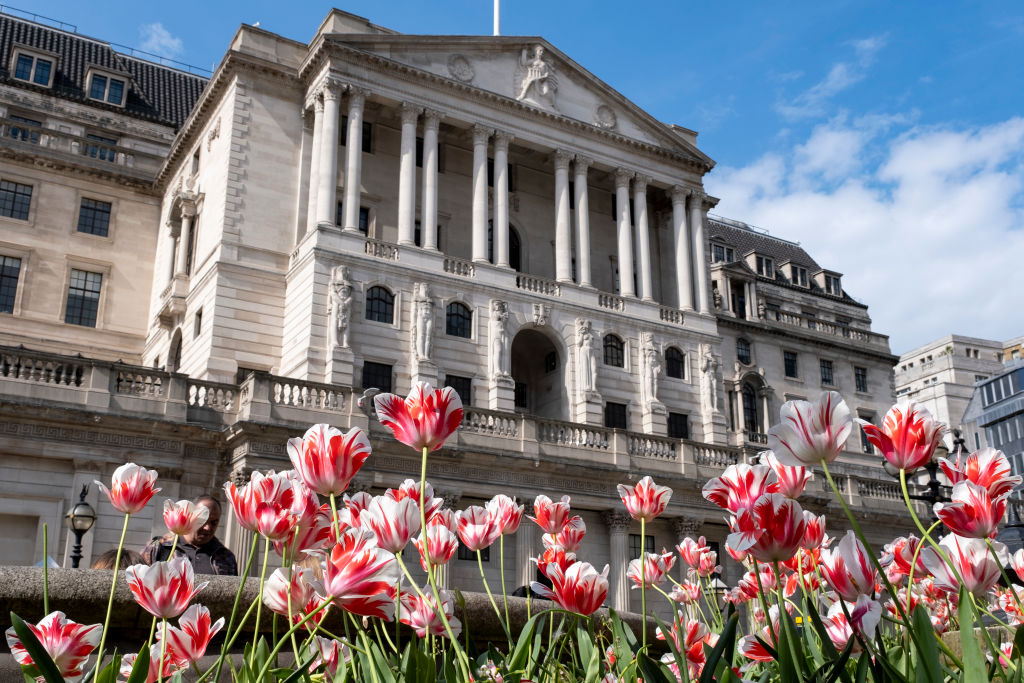UK inflation: What are the Consumer Price Index release dates?
The UK’s inflation reports are published monthly. When do they come out and where are prices heading?


Get the latest financial news, insights and expert analysis from our award-winning MoneyWeek team, to help you understand what really matters when it comes to your finances.
You are now subscribed
Your newsletter sign-up was successful
Want to add more newsletters?
The UK’s rate of inflation rose by 3% in the 12 months to January 2026, slowing from 3.4% in December.
The January Consumer Price Index (CPI) figures, published by the Office for National Statistics (ONS), show the biggest disinflationary effects came from transport, food and non-alcoholic drinks, and housing and household services.
Conversely, health costs, restaurants and hotels were the biggest upward driver of prices.
MoneyWeek
Subscribe to MoneyWeek today and get your first six magazine issues absolutely FREE

Sign up to Money Morning
Don't miss the latest investment and personal finances news, market analysis, plus money-saving tips with our free twice-daily newsletter
Don't miss the latest investment and personal finances news, market analysis, plus money-saving tips with our free twice-daily newsletter
The Bank of England predicts inflation will slow further this year. It expects inflation to ease to 2.1% in April, in part due to disinflationary measures included in the 2025 Autumn Budget.
But when are the next CPI figures out and when will they be published each month in 2026? We reveal the key dates you should know below.
Next UK inflation figures
In the UK, the main measure of inflation is CPI. The Office for National Statistics (ONS) releases this once a month. Each reading covers the previous month.
CPI release dates for 2026
- 25 March (covering February)
- 22 April (covering March)
- 20 May (covering April)
- 17 June (covering May)
- 22 July (covering June)
- 19 August (covering July)
- 16 September (covering August)
- 21 October (covering September)
- 18 November (covering October)
- 16 December (covering November)
- 20 January 2027 (covering December)
What time is CPI released in the UK?
The ONS releases the latest CPI data at 7am once a month. The reports can be accessed by going onto the ONS website and clicking on its release calendar.
All published inflation reports, as well as pages for upcoming ones, are listed there. The report will be titled, “Consumer price inflation, UK”, followed by the month and year in question.
If you do not want to trawl through the data yourself, MoneyWeek reports on each month’s inflation data, bringing you the latest news and expert commentary, explaining what it means for you.
What is CPI and how is it calculated?
CPI, the main measure of inflation used in the UK, tells you how fast the cost of living is increasing (or decreasing).
It is calculated using a basket of typical household goods and services – from eggs, flour and milk to hotel costs, restaurants and air fryers – and tracking how their prices change.
The CPI basket of goods is adjusted once a year to reflect current trends in consumption. For example, VR headsets and yoga mats were added to the basket in 2025, while oven-ready gammon joints and DVD rentals were removed.
The Bank of England keeps a close eye on CPI when setting interest rates. If inflation is too high, the Bank may raise interest rates to slow consumer spending and cool the economy.
This works to bring prices down because households have less money to spend when mortgage rates are high and debts are more expensive to repay.
Meanwhile, if inflation is too low, the Bank may reduce interest rates so consumers have more disposable income to spend. Due to the laws of supply and demand, this should push prices back up and stimulate growth in the economy.
Get the latest financial news, insights and expert analysis from our award-winning MoneyWeek team, to help you understand what really matters when it comes to your finances.

Daniel is a financial journalist at MoneyWeek, writing about personal finance, economics, property, politics, and investing.
He covers savings, political news and enjoys translating economic data into simple English, and explaining what it means for your wallet.
Daniel joined MoneyWeek in January 2025. He previously worked at The Economist in their Audience team and read history at Emmanuel College, Cambridge, specialising in the history of political thought.
In his free time, he likes reading, walking around Hampstead Heath, and cooking overambitious meals.
-
 What the government’s baby boomer retirement data says about the future of pensions
What the government’s baby boomer retirement data says about the future of pensionsA study of the retirement routes of people born in 1958 paints a worrying picture for people’s pension savings
-
 An experienced investor’s end of tax year checklist
An experienced investor’s end of tax year checklistThe clock is ticking down before the end of the 2025/26 tax year, when any tax-free savings and investment allowances are lost. For experienced investors, though, the deadline for some tax-saving schemes is even earlier.
-
 Why Scotland's proposed government bonds are a terrible investment
Why Scotland's proposed government bonds are a terrible investmentOpinion Politicians in Scotland pushing for “kilts” think it will strengthen the case for independence and boost financial credibility. It's more likely to backfire
-
 How have central banks evolved in the last century – and are they still fit for purpose?
How have central banks evolved in the last century – and are they still fit for purpose?The rise to power and dominance of the central banks has been a key theme in MoneyWeek in its 25 years. Has their rule been benign?
-
 UK to have highest inflation among advanced economies this year and next, says IMF
UK to have highest inflation among advanced economies this year and next, says IMFThe International Monetary Fund (IMF) says it expects inflation to remain high in the UK, while lowering economic growth forecasts for 2026.
-
 Is Britain heading for a big debt crisis?
Is Britain heading for a big debt crisis?Opinion Things are not yet as bad as some reports have claimed. But they sure aren’t rosy either, says Julian Jessop
-
 'Britain is on the road to nowhere under Labour'
'Britain is on the road to nowhere under Labour'Opinion Britain's economy will shake off its torpor and grow robustly, but not under Keir Starmer's leadership, says Max King
-
 'Governments are launching an assault on the independence of central banks'
'Governments are launching an assault on the independence of central banks'Opinion Say goodbye to the era of central bank orthodoxy and hello to the new era of central bank dependency, says Jeremy McKeown
-
 Why investors can no longer trust traditional statistical indicators
Why investors can no longer trust traditional statistical indicatorsOpinion The statistical indicators and data investors have relied on for decades are no longer fit for purpose. It's time to move on, says Helen Thomas
-
 Live: Bank of England holds UK interest rates at 4.5%
Live: Bank of England holds UK interest rates at 4.5%The Bank of England voted to hold UK interest rates at their current level of 4.5% in March, as widely anticipated, after inflation rose to 3% in January